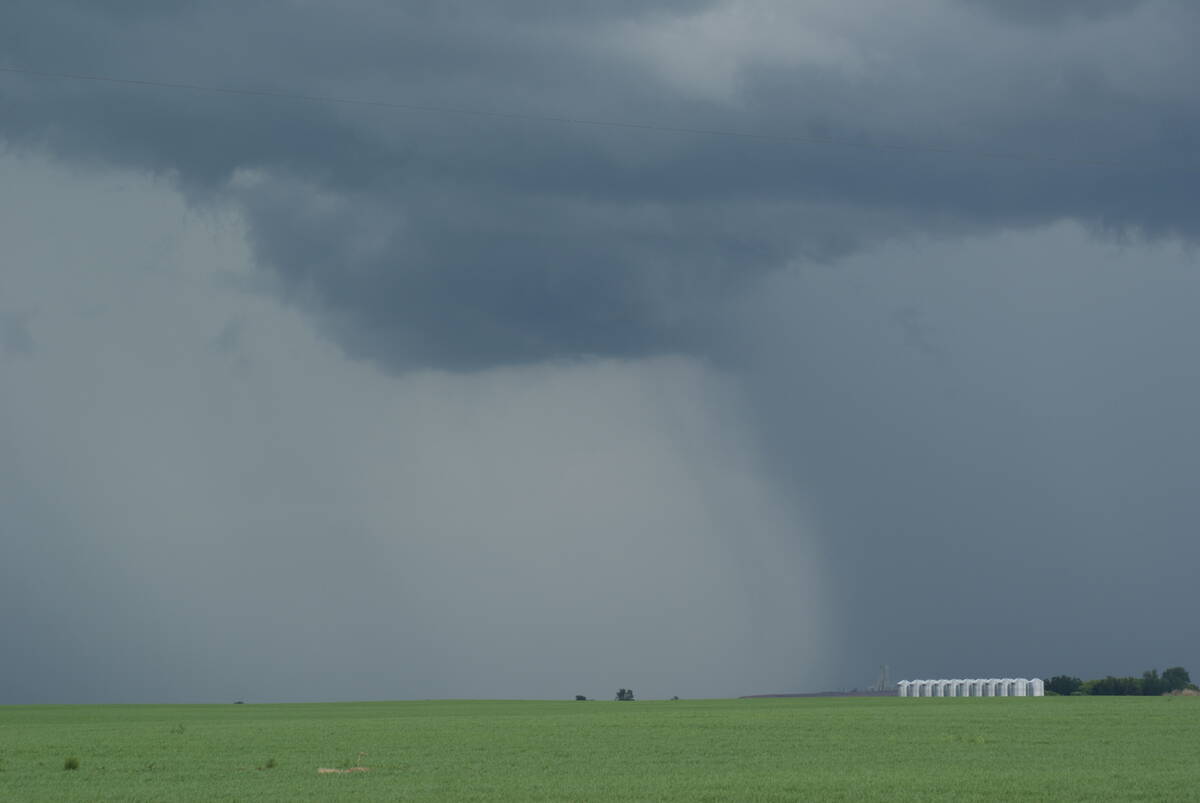If you could pick your spot in Canadian agriculture, chances are it wouldn’t be a small hog farm in Prince Edward Island.
But even in out-of-the-mainstream places, technology and innovative thinking can increase the odds of success.
The pork business in P.E.I. is horrible right now. A strong Canadian dollar means low hog prices, and feed costs are way up. The province’s lone pork processing plant, which is vital for local hog farmers, has been in danger of closing for years.
But Paul Larsen, who has a 145-sow, farrow-to-finish operation in Belfast, P.E.I., is fairly optimistic.
Read Also

Canadian farmers need new tools to support on-farm innovation
Farmers need a risk management buffer that actually works and investment that drives advancements forward if Canada is to build resilience.
“I feel we’re on a more even playing field today,” says Larsen.
“We have just as much opportunity as anyone else to go after premium markets in Japan or elsewhere.”
One reason for his optimism is that a group of local farmers now running the hog plant is focusing on higher-margin specialty pork markets.
The other is his belief that knowledge will be the key to success in that kind of endeavor and that P.E.I. is as good a place as any to find it.
Part of his knowledge advantage comes from a fledging bioscience company in nearby Charlottetown headed by an entrepreneurial food scientist who believes being on the cutting edge is no longer determined by geography.
Progressive BioActives extracts a compound called beta glucan from the cell wall of brewer’s yeast. Properly purified and mixed with vitamins, yeast beta glucan stimulates an animal’s immune response. Larsen participated in an early field trial of the product called Pro Vale. The effects were soon apparent: larger litters without a drop in birth weights, as well as healthier and more robust piglets and sows.
“It’s not a silver bullet,” says Shane Patelakis, the 32-year-old founder of Progressive BioActives. “But our sales are growing rapidly – they were up about 300 percent in ’06 – and that’s because about seven out of 10 people who try it keep using it.”
The company is planning a $4 million plant in Charlottetown to produce ProVale. In addition to the disease control market, the product may also have a bright future as an alternative to antibiotics, which are scorned by a growing number of consumers.
Hog producers may not like this antibiotics-are-bad movement, but Patelakis and many others see it as an opportunity.
“There’s just so much pork out there. We’re competing with the U.S. and they get their corn and feedgrains so much more cheaply than we can,” says Patelakis.
“That makes it pretty hard to make money up here. But if we can get into a premium market, like natural pork, it could really make a difference.”
You might think Patelakis is biased, carried away by the promise of his discovery. But he didn’t discover beta glucans.
They were well established in the health food market when he came across them. His eureka moment was an entrepreneurial one. He saw that the human market for beta glucans was crowded with competitors, but the animal feed side was wide open.
In other words, both Larsen and Patelakis recognize that in the knowledge economy, rewards go to those who keep their eyes peeled and use the latest advancements to create business opportunities.
“If I’m going to find the margins to allow me to survive as a hog farmer, then I have to go out there and find new techniques and new products that can help me improve my operation,” says Larsen. “I don’t think you can wait around and see how things play out. I think you have to pursue these different avenues that can give you an edge.”
Larsen hasn’t committed to natural pork yet; he figures omega 3 pork is likely the best economic bet in the short term. But he’s certainly willing to go that route when the cost-benefit scale for natural pork tips the right way.
The knowledge game isn’t an easy one. Farmers must seek new technology while not getting suckered into buying over-hyped “foo-foo dust products,” says Patelakis.
“It’s hard for farmers – or anybody – to know what’s real,” he adds. “But it’s either innovate or die. These days, you can’t sit back.”
So how do you put yourself on the cutting edge? The internet, of course.
Larsen says he regularly uses the web to check out the latest developments in the pork industry.
“If somebody has something you’re interested in or that might be an opportunity, it’s pretty easy to fire off an e-mail and see if it leads somewhere.”
And who knows? The edge you’re looking for might be a little company just up the highway.
Glenn Cheater is editor of Canadian Farm Manager, the newsletter of the
Canadian Farm Business Management Council. The newsletter as well as archived columns can be found in the news desk
section at www.farmcentre.com.














